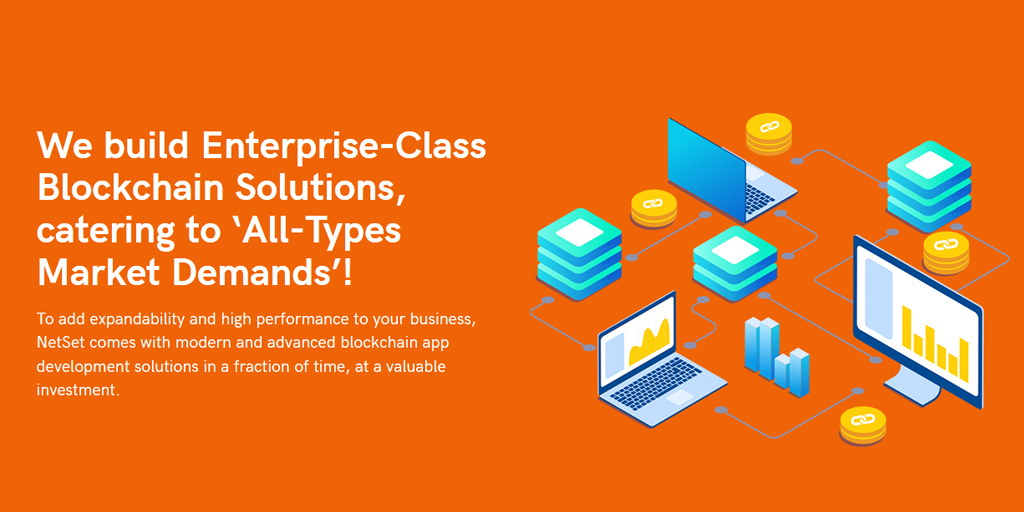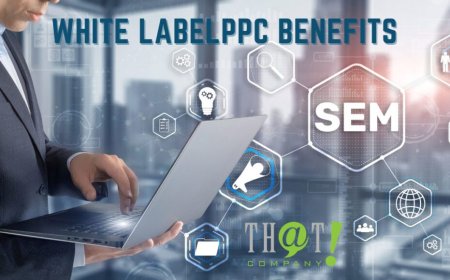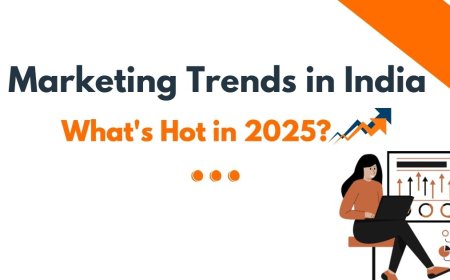How Healthcare Software Development Enhances Data Security and Compliance?
Learn how healthcare software development enhances data security and compliance by safeguarding patient data, ensuring privacy, and meeting industry standards.

The healthcare industry today is going through a massive digital transformation. From storing patient records to booking appointments and delivering virtual care, almost everything is becoming digital. With this shift, ensuring data security and regulatory compliance has become more important than ever. Patient health information is sensitive, and even the smallest data breach can have serious consequences. Healthcare software development plays a major role in preventing such risks. It helps organizations keep data secure while meeting strict compliance standards.
This blog will explore how healthcare software development enhances data security and ensures compliance. Well also look at common challenges, key features that support security, and how developers work behind the scenes to build trustworthy digital healthcare solutions.
Why Data Security Matters in Healthcare
Healthcare organizations collect and store large amounts of personal data, including medical histories, diagnoses, treatments, lab results, and even insurance details. This kind of information is known as Protected Health Information (PHI). PHI is extremely valuable and often targeted by cybercriminals for identity theft or insurance fraud.
A data breach not only harms patients but also damages the reputation of healthcare providers and could lead to legal action or fines. Thats why protecting this data is a top priority. Healthcare software must be designed to prevent unauthorized access, loss, or leaks of sensitive information.
Understanding Compliance in the Healthcare Industry
Compliance means following a set of rules and laws that are meant to protect patient privacy and data. In healthcare, there are strict regulations that developers and organizations must follow. Some of the most common compliance standards include:
- HIPAA (Health Insurance Portability and Accountability Act): A U.S. law that protects sensitive patient health information.
- GDPR (General Data Protection Regulation): A regulation that applies to organizations handling data of EU citizens.
- HITECH Act: Supports the use of electronic health records (EHRs) and includes additional privacy and security rules.
- ISO and SOC certifications: These are international standards that focus on information security and data handling practices.
Healthcare software must be built in a way that follows these standards to avoid legal troubles and protect user trust.
Key Security Features in Healthcare Software
Modern healthcare software is designed with built-in features that enhance data security. Lets take a closer look at these features and how they help protect patient information.
Encryption of Data
Encryption is one of the most basic and essential security tools. It ensures that even if someone gains access to the data, they wont be able to read or use it. In healthcare software, encryption is applied both when data is being stored (at rest) and when its being transferred (in transit).
For example, when a patient sends a message to their doctor through a patient portal, that message is encrypted so that no one else can read it. Similarly, health records stored in databases are encrypted so that even system administrators can't view them without proper clearance.
Secure Login and Authentication
To make sure that only authorized users access patient information, healthcare software includes features like multi-factor authentication (MFA). This means a user must enter a password and verify their identity with an additional step, such as a code sent to their phone.
Role-based access control is also common. It ensures that users only see the data they are allowed to. For example, a nurse might be able to view a patients medication history, while a billing staff member only sees insurance information.
Audit Trails and Activity Logs
Audit trails help track every action taken within the software. If something goes wrong or data is misused, the logs can show who did what and when. This helps in identifying and responding to security issues quickly.
These logs are especially important for compliance because they prove that the organization is actively monitoring its data and following safety practices.
Data Backup and Disaster Recovery
Sometimes data can be lost due to system failure, cyberattacks, or human error. Healthcare software includes regular data backups and recovery plans to prevent permanent loss of data.
Backups are stored securely in different locations and can be restored quickly in case of emergencies. This ensures that patient care is not disrupted, and compliance with data retention requirements is maintained.
Secure APIs and Integration
Healthcare software often needs to connect with other systems like lab tools, pharmacy software, or insurance databases. These connections are made using APIs (Application Programming Interfaces).
A well-designed healthcare API uses encryption, access controls, and secure tokens to ensure that data shared between systems is protected. If APIs are not secure, they can become a gateway for hackers, so developers take special care in building and testing them.
Compliance-Friendly Design and Development Practices
Building software for the healthcare industry requires a development process that keeps security and compliance at its core. Heres how experienced developers make sure that compliance is part of the product from the very beginning.
Privacy by Design
This approach means privacy and security are considered from the earliest stages of software development. Every feature is designed in a way that reduces the amount of personal data collected and ensures that it's handled safely.
For instance, developers might choose to mask certain data fields or anonymize data to protect user identities. This limits exposure while still allowing the software to function properly.
Regular Security Testing
Security is not a one-time activity. Developers perform regular security testing using methods like penetration testing, vulnerability scanning, and code reviews. This helps detect and fix weaknesses before hackers can exploit them.
Testing also includes checking compliance with current laws and regulations to ensure the software stays up to date with industry standards.
Documentation and Compliance Reports
To stay compliant, healthcare providers must often show proof that their software meets security standards. Developers help by providing proper documentation, including security policies, user access logs, and system audit reports.
Having this paperwork in place can protect organizations during audits or in case of a data breach investigation.
Read more: How Healthcare Software Development Solutions Enhance Patient Engagement?
The Role of Cloud Technology in Healthcare Data Security
Cloud computing has made it easier for healthcare providers to store, access, and manage data. But it also introduces new security challenges. Thats why choosing a secure and compliant cloud provider is essential.
Cloud-based healthcare software should be hosted on platforms that follow strict security standards like AWS HIPAA-eligible services or Microsoft Azure for Healthcare. These platforms offer encrypted storage, firewalls, and real-time monitoring to protect data 24/7.
Cloud technology also allows for faster disaster recovery and scaling, making it easier for organizations to grow without compromising security.
Common Challenges in Healthcare Data Security
Even with all these tools and best practices, healthcare organizations still face some challenges when it comes to data security and compliance.
- Human error: Staff might accidentally share information or use weak passwords. Regular training is needed.
- Outdated systems: Legacy software may not meet modern security standards and can be vulnerable to attacks.
- Third-party risks: Sometimes, vendors or partners who have access to data may not follow the same security practices.
- Rapid digital growth: As more features are added, it becomes harder to monitor and secure every part of the system.
Addressing these issues requires continuous investment in software updates, staff education, and thorough risk assessments.
Future Trends in Healthcare Software Security
Security threats keep changing, and healthcare software must evolve to stay one step ahead. In the future, we can expect to see more use of artificial intelligence (AI) and machine learning in cybersecurity.
These technologies can automatically detect unusual behavior and alert administrators in real time. For example, if a user logs in from an unfamiliar location or downloads too much data, the system can flag it immediately.
Blockchain is another technology that could make health records more secure by storing data in a decentralized way, making it harder to tamper with.
As the healthcare industry becomes more connected, the demand for secure, compliant, and intelligent software solutions will continue to grow.
Conclusion
Healthcare software development plays a crucial role in keeping patient data safe and ensuring compliance with various legal standards. With the growing shift toward digital healthcare, the importance of secure software has never been greater. By integrating features like encryption, secure logins, audit trails, and regular testing, developers create solutions that protect sensitive information and build trust among users.
Organizations must partner with skilled developers who understand the unique needs of the healthcare industry. From secure APIs to privacy-first design and cloud support, every element of the software should focus on protecting both patients and providers. Investing in secure software not only prevents costly breaches but also ensures smoother, more reliable healthcare experiences.
If you are planning to create a secure healthcare solution, its essential to collaborate with the right technology partner. Working with an experienced on demand app development company can help you build software that meets all security requirements, supports regulatory compliance, and ensures your users feel safe and protected every time they use your service.
FAQs
What makes healthcare data more sensitive than other data types?
Healthcare data includes private medical information, history, and personal identifiers that can be misused if exposed, making it highly sensitive and valuable to hackers.
How does healthcare software help in staying HIPAA compliant?
Healthcare software includes features like data encryption, access control, and audit logging which help in meeting HIPAAs privacy and security rules.
Can cloud-based healthcare systems be secure?
Yes, when hosted on compliant cloud platforms with strong security features like encryption, access control, and continuous monitoring, cloud systems can be very secure.
What is the role of encryption in healthcare data protection?
Encryption makes healthcare data unreadable to unauthorized users, protecting it during storage and transmission and reducing the risk of data breaches.
How often should healthcare software be tested for security?
Security testing should be done regularly, especially after updates or adding new features, to ensure there are no vulnerabilities in the system.




































